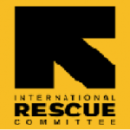The Stabilization Doctor will be responsible for running day to day activities of YOLA stabilization center and he/she reports to the stabilization center manager and works closely with the Health and Nutrition Manager of ADAMAWA state for Day-to-day administrative issues. The stabilization center Doctor ensures the implementation of a quality clinical care of children admitted to the center in accordance with National and international standards. The Medical Doctor will identify gaps in SC and take the necessary steps to address those gaps. He/she provides technical oversight assistance in planning, implementing, and monitoring of high impact intervention and provides support in system strengthening and promotion of childhood nutrition, with special focus to the most vulnerable and unreached population groups. He/she will directly supervise clinical staff and ensure staff maintain high professionalism throughout. The stabilization Doctor will ensure quality of services in the stabilization center CMAM PROGRAM through strengthening capacities on the clinical management of SAM and facilitating integration of services related to newborn and child health, with the support of the Nutrition coordinator and stabilization center manager. The stabilization center Doctor will oversee night coverage activities/services provided to admitted cases (and caregivers) at the stabilization center and will generally be responsible for documentation and stock management of commodities, medicines/consumables, and data tools.
Key Areas of Accountability
Under direct supervision of the stabilization center manager, the stabilization center Doctor will have the following stabilization center functions:
Daily calculation of the quantity of food needed for the day to day based on the number of children present in phase I and transition or refers the work to somebody who will calculate, and he supervises him.
Order the food for the SC In collaboration with the hospital dietician.
Order the drugs for the SC In collaboration with the pharmacist and the SC matron.
Manage the daily collection of the number of new admissions and exits and attendance from the registrar.
Weekly checks and transmit the statistics to the stabilization center manager.
Give feedback to the team and take appropriate action.
Compiles monthly reports and submits to SC manager, coordinator, and hospital/state leadership.
Provision of high-quality care to complicated SAM cases
Provide clinical care to complicated cases of SAM admitted at the stabilization center (SC)
Ensure clinical care provided at the SC is in accordance with the National guidelines for inpatient Management of SAM
Mentor and provide on the- job training on stabilization care and documentation to nurses and other health workers deployed to the SC to ensure:
Respect of approved protocol for management of acute malnutrition
Correct use of program monitoring and evaluation (recording tool)
Appropriate use of resources, stock control and ordering procedures
Program Management and Documentation
Monitor the in-patient Management of SAM
Supervise the use of medicines, medical supplies, and nutrition related commodities and data tools in the SC.
Participate in the development and review of program monitoring and evaluation tools where necessary.
Ensure timely collection, compilation, and analysis of quality data as well as production of quantitative and qualitative reports regarding all IRC activities.
Produce case studies related to in-patient care, at least one per quarter or as per line manager’s request.
Regularly evaluate the impact of the activities and propose changes for improvement.
Prepare weekly and monthly activities reports and any other ad hoc report that may be required.
Support the supply chain management and forecast for medicines, medical supplies, Nutrition commodities (F-75, F-100, Resomal,) and data tools.
Monitor the stock of commodities, medicines, medical supplies: calculate needs, decide quantities to be delivered to the stabilization center.
Plan logistics and materials needs for the SC.
Participate in stakeholder meetings on crosscutting health issues.
Facilitate integration of services for a holistic approach of SAM by working in collaboration with partners
Therapeutic Feeding Functions:
Checks the pharmacy for correct drug preparation, storage, and stock balance etc.
Checks food stock: food consumption and cleaning of the store
Food distribution: works with hospital dietician to ensure meals distributed on time and respect of the quantity.
Maintains and supervises quality of medical care dispensed: drugs distribution correct application of the medical protocols: clinical follow up, rehydration, detection in times of the medical complication.
Nutritional follow up: correct measurements and follow-up of weight and edema.
Individual cards and the attendance register book correct filling
Ensure and quality checks admission and exit: respect of criteria.Ensures and role-models respect for the dignity of the patients and the accompanying caretaker.
Resolution of problems occurring between the patient and the personnel
Ensure that mothers are well informed about the functioning of the center, the state, and the evolution of their child.
Clinical Functions:
Set work schedule to include overnights shared with emergency hospital physicians.
Clinical examination of all patients with signs of complicated pathologies or presenting complication or refer by the nurses.
Prescription management and follow up of severe and complicated cases in consultation with hospital physician.
Adaptation and change of specific medical treatment and differential diagnosis in partnership with hospital physician.
Authorizes and interpret rapid clinical laboratory.
Referral of patients to hospital and between hospital
Training of hospital IRC nurses on routine treatment prescription (theoretical and on the job training)
Works in collaboration with the nurses to ensure medical care of quality.
Works as a member of the team taking in consideration the non-medical problems encountered by the patients (feeding and psychosocial)
Develop relationship with medical counterparts with hospital.
Staff Management:
Maintain updated job descriptions, conduct interviews, orient new staff to the IRC and the stabilization center manager.
Supervise the stabilization center staff (Nurse, help mothers, cleaner and registrars) directly provide ongoing leadership to the project team and oversee implementation and coordination of activity plans to ensure targets are met.
Provide ongoing supervision, leadership, training and technical support and guidance to nutrition staff and ensure all stabilization center staff adhere to best-practice principles in all aspects of program implementation.
Overall responsibility for stabilization center staff team’s timesheet, workplan vacation schedules and staff training/development activities
Ensure performance management system documentation for all staff is in place and followed up regularly.
Build staff capacity in workplan development and reporting to ensure accurate monitoring and documentation of activities.
Recommend and implement a capacity building/development plan for project staff based on documented capacity needs assessment exercise.
Ensure stabilization center staff understands and follows IRC and donor policies and procedures.
Participate in nutrition related meetings seminars and workshop and feed information acquired back into programming.
Work and strengthen relationship with ADAMAWA State ministry of health and hospital management board UNICEF and other partners implementing CMAM in the state.
Qualifications
Medical degree (MBBS: MBChB or equivalent) from a recognized/accredited university in Nigeria and registered with Nigeria Medical and Dental Council of Nigeria Dentist on board and have a valid practice license.
A medical doctor duly registered and validly licensed by the appropriate regulatory body,
At least 1 year of experience post-graduation in a busy hospital set up with pediatric services, experience in inpatient treatment of pediatrics and severe acute malnutrition with complications.
Experience in Nutrition in community-based programs
Training and experience on treatment of acute malnutrition
Advocacy and logistics experience
Fluency in English, Hausa spoken and written, Fulfulde are added advantage.
Experience in managing Nutrition program in complex emergencies.
Excellent management skills
Excellent oral and written communication skills
Ability to live under pressure in an unstable security environment.
Excellent computer skills MS Word, Excel, Power-Point, Epi- info/SPSS outlook and the internet
Standards of Professional Conduct: The IRC and IRC workers must adhere to the values and principles outlined in the IRC Way – Code of Conduct. These are Integrity, Service, and Accountability. In accordance with these values, the IRC operates and enforces policies on Beneficiary Protection from Exploitation and Abuse, Child Safeguarding, Harassment-Free Workplace, Fiscal Integrity, Anti-Retaliation, Combating Trafficking in Persons, and several others.









